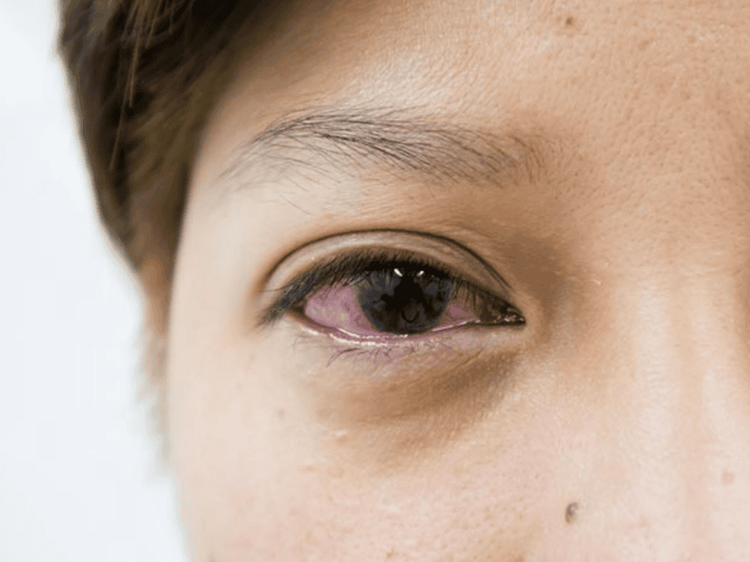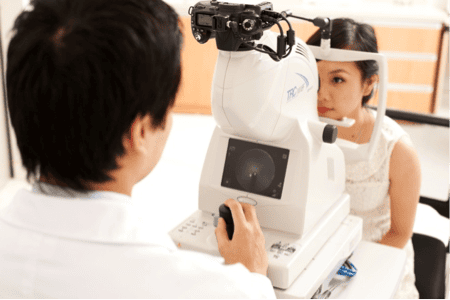This is an automatically translated article.
The article was professionally consulted by an eye doctor - Department of Examination & Internal Medicine - Vinmec Hai Phong International General HospitalHerpes keratitis is a viral infection of the eye. Treatment will depend on the extent, if not treated promptly, can cause serious damage to the eyes, possibly even vision loss and blindness.
1. Herpes keratitis
Herpes keratitis is a disease caused by the herpes simplex virus (HSV). Herpes virus is a virus with an acidic DNA nucleus and lives on its only host, humans. The herpes virus is of two types. Type I usually affects the face, type II affects the genitals and is sexually transmitted. However, both herpes viruses can spread to the eye and cause an infection.
Keratitis usually manifests as a superficial punctate inflammation of the cornea, which may be transient and then resolve. However, in some patients, the inflammatory dots can worsen into corneal ulcers, difficult to treat, the disease often recurs and leaves sequelae (corneal scarring).
Of the two herpes viruses, type I is highly contagious and is most commonly transmitted by skin-to-skin contact with an infected person. Primary ocular herpes virus infection usually occurs in children from 6 months to 5 years of age, rarely with systemic manifestations, but mainly inflammation of the eyelids and conjunctiva. After primary infection, the virus lies in a dormant state, living in the nerve cells of the skin. Viral reactivation is triggered by a number of factors including:
Stress Sun exposure Fever Injuries Surgery Menstruation Certain medications.

Hình ảnh virus simplex herpes (HSV) gây viêm giác mạc
2. Diagnosis of herpes keratitis
To diagnose herpes keratitis, the doctor will base on the clinical manifestations. Patients with herpes keratitis often have symptoms including:Subjective symptoms
Eye pain Red eyes Watery eyes Sensitivity to light. Blurred vision Objective symptoms
Conjunctival conjunctivitis Conjunctival: fluorescein staining, see pictures of punctate inflammation, twig-shaped ulcers, map images... Possible complications: uveitis, intraocular pus...

Đau và đỏ mắt là biểu hiện bệnh viêm giác mạc do herpes
3. Treatment
Treatment of herpes keratitis depends on the severity of the disease and is usually treated with topical and sometimes systemic antivirals, plus antibiotics when infection is present. In some cases of severe scarring and loss of vision, a corneal transplant may be necessary.Some steroid eye drops can cause the virus to multiply, making a face infection worse. Therefore, it is necessary to consult an ophthalmologist before starting treatment.
Herpes is not completely curable, and it can recur. Therefore, some ways to prevent a recurrence include:
If an active blister or blister appears, avoid touching your eyes. Avoid steroid eye drops, this causes the virus to multiply. Stop wearing contact lenses if you notice an eye infection. Get an eye exam right away if symptoms of herpes infection reappear

Người bệnh bị viêm giác mạc do herpes nên đến cơ sở y tế để được thăm khám và điều trị sớm
Herpes keratitis can leave serious complications such as ulceration, numbness of the corneal surface, even corneal perforation. Therefore, when seeing unusual signs, especially for those who have been infected with herpes, it is necessary to immediately go to a medical facility for timely examination and treatment.
Customers wishing to examine and treat herpes keratitis can directly go to Vinmec Health System nationwide or contact to book an online appointment HERE.













